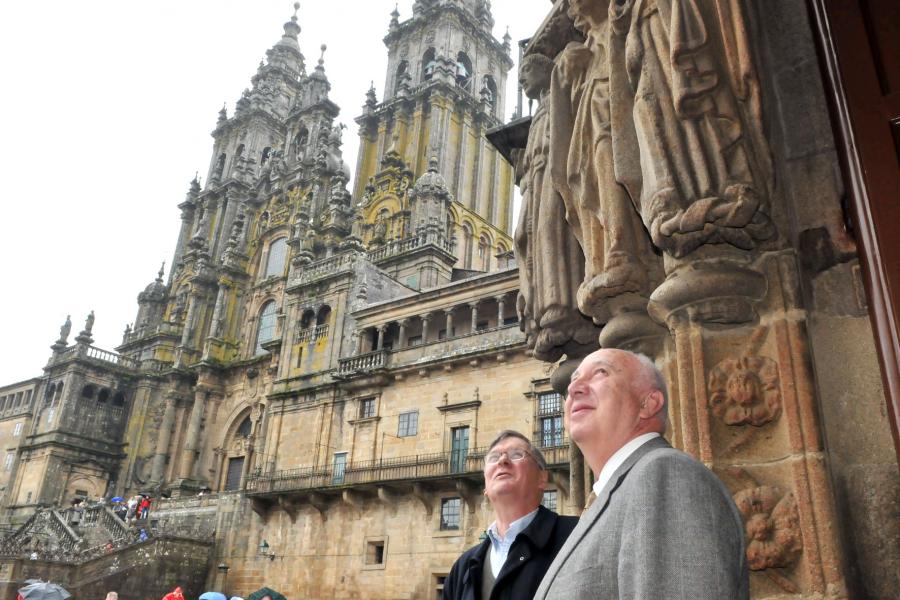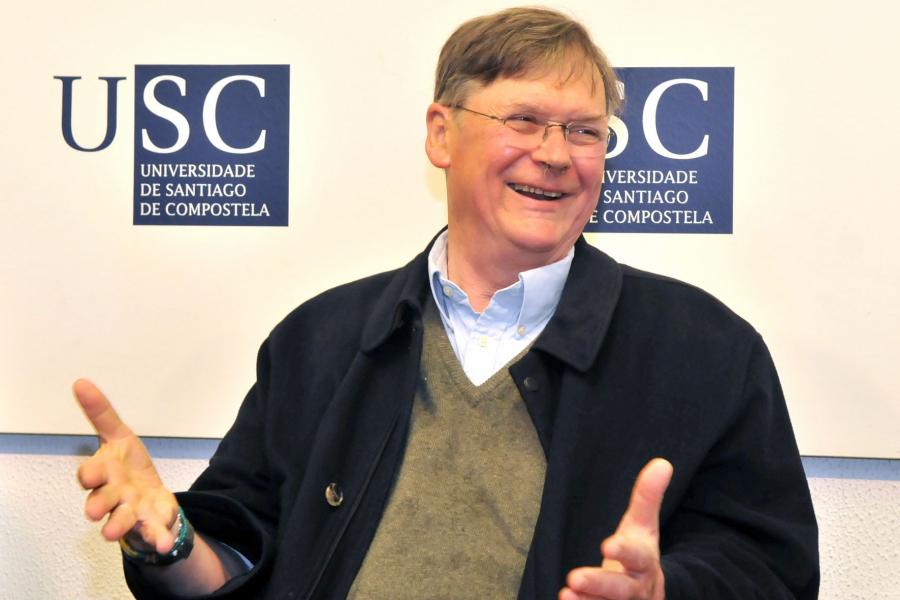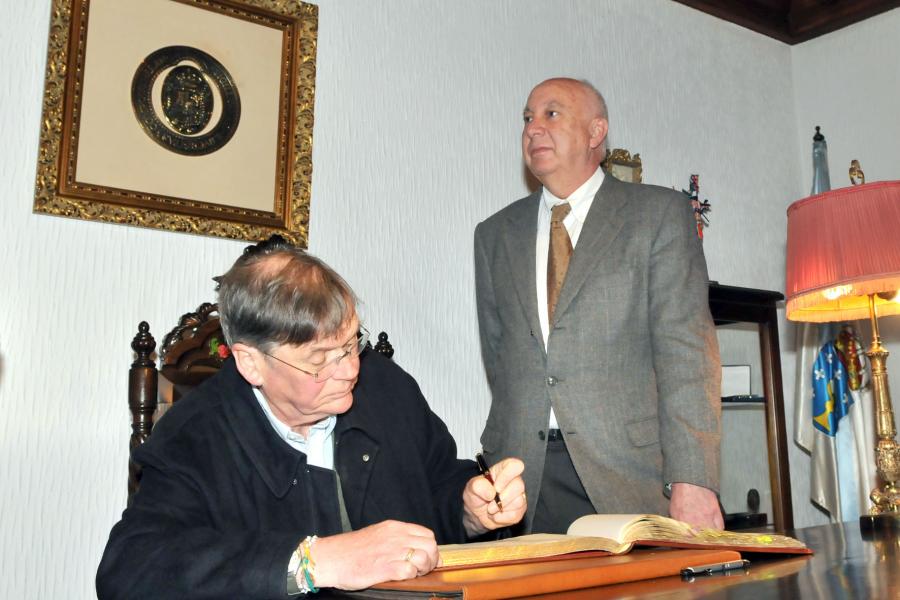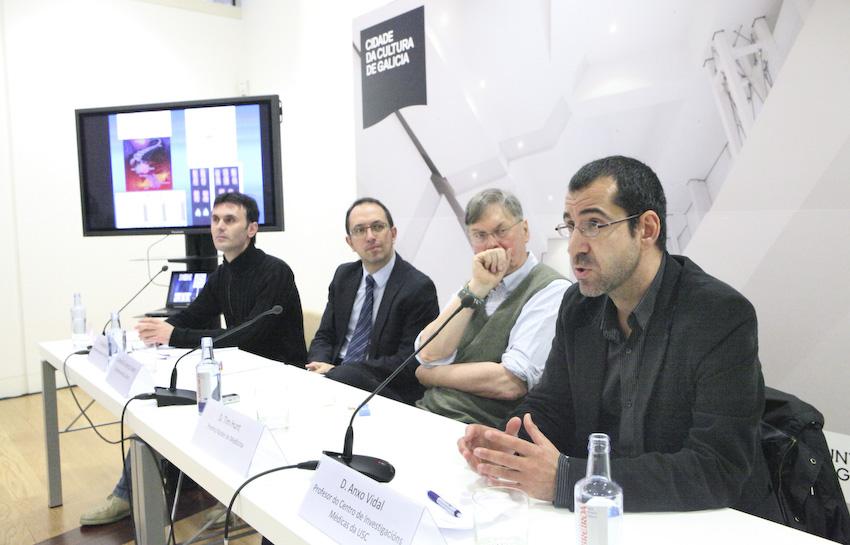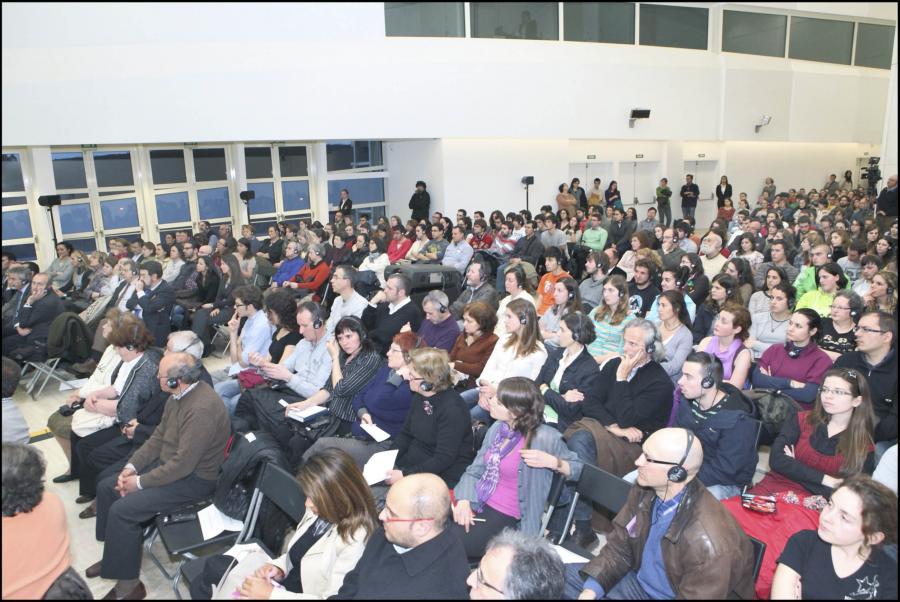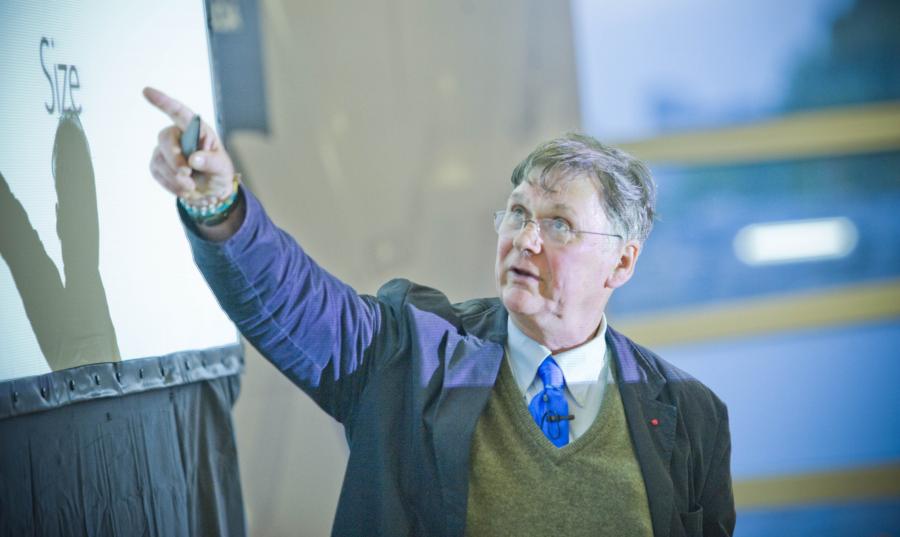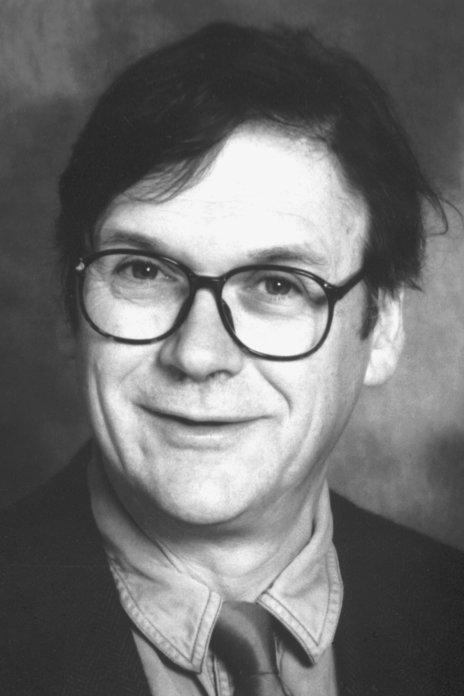
Nobel Prize "for his discoveries of key regulators of the cell cycle".
The cell cycle is the series of coordinate events that allow a cell to divide into two daughter cells. This process is fundamental to biology since this is the way that pluricellular organisms, including humans, have to originate the billions of cells that constitute them in their adult stage, from a single initial cell (the zygote). Cell division also ensures proper repair of damaged tissues or replacement of dead cells. Alterations in cell division lead to pathologies of great social impact such as cancer.
Cell cycle is ruled by certain molecular complexes composed by a subunit with enzymatic activity, called CDK, which modifies other cellular proteins thus changing their activity, and a regulatory subunit called cyclin, which presence is necessary to allow CDK function. In 1982 Professor Tim Hunt discovered, working in sea urchin eggs, a protein that accumulated just before cell division, and abruptly disappear when division occured. Due to its unique expression pattern, Hunt named this protein as "cyclin". His experiments not only led to the discovery of cyclin, but also demonstrated that protein degradation is a key regulatory mechanism in cell cycle. Hunt also demonstrated the existence of cyclins in other species, showing that cyclins are highly conserved during evolution, a common feature of their partners, the CDKs.
Hunt's discovery helped to understand how the genetic information contained in the chromosomes is equally split between the two daughter cells during cell division. This process must occur in a very precise way, both intime and form, and the cyclins are the clockst hat control this process.Furthermore these findings allowed us to understand how alterations in cell cycle cause errors that lead to cancer development, and subsequent studies have shown that altered expression of cyclins is a common finding of many human tumors, something that indicates the great relevance of Prof. Hunt's work.
